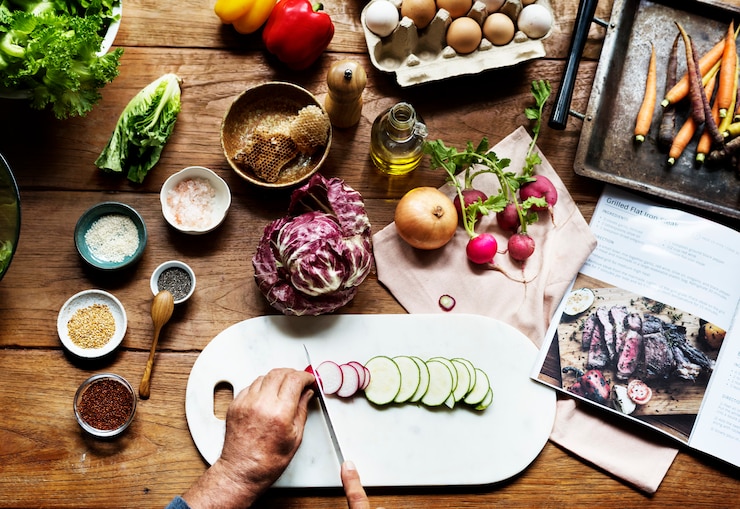Cooking is not just about creating delicious meals; it’s also an opportunity to make a positive impact on the environment. In today’s world, where sustainability is crucial, adopting mindful habits in the kitchen can reduce waste significantly. Shifting to eco-conscious practices starts with small changes, each of which contributes to a larger movement toward a healthier planet.
The Core Principles of Zero-Waste Cooking
Zero-waste cooking encourages home cooks to minimize food waste by repurposing leftovers, planning meals carefully, and composting unavoidable scraps.
One key habit is meal planning. Planning dishes in advance allows you to shop wisely, avoiding impulse purchases that often end up forgotten. Another essential practice is proper food storage. Learning how to store fruits, vegetables, and grains efficiently extends their freshness and reduces spoilage.
Another central idea is using every edible part of an ingredient. Broccoli stems, carrot tops, and even potato peels can be transformed into delicious components of meals rather than being discarded.
Practical Techniques for a Zero-Waste Cooking
Practicing zero-waste cooking does not require special skills—just mindfulness and creativity. Here are several easy techniques to incorporate into everyday life:
- Creative Cooking: Instead of throwing out vegetable scraps, use them to make flavorful stocks and broths. Stale bread becomes crunchy croutons, and overripe fruits can be blended into smoothies or baked into muffins.
- Batch Cooking: Preparing meals in larger quantities prevents frequent use of packaging materials and ensures no ingredients are wasted.
- Portion Control: Measuring portions accurately helps avoid leftovers that could spoil before being eaten.
- Preservation Methods: Techniques like pickling, fermenting, and freezing allow you to extend the life of seasonal produce.
Additionally, shopping at farmers’ markets or stores that allow bulk purchases reduces packaging waste and supports local producers.

Common Mistakes to Avoid When Pursuing Zero-Waste Cooking
Even with the best intentions, beginners might make mistakes. Recognizing common pitfalls helps maintain the momentum toward a sustainable kitchen:
- Overcomplicating Meals: Trying too many new recipes at once can lead to a surplus of unused ingredients.
- Ignoring Inventory: Forgetting what’s already in the fridge or pantry leads to unnecessary purchases.
- Throwing Away Ugly Produce: Misshapen vegetables and slightly bruised fruits are still perfectly edible and should be embraced.
Embracing imperfections and focusing on simplicity makes the zero-waste journey smoother and more rewarding.
The Wider Impact of Zero-Waste Cooking
Beyond personal benefits like saving money and eating healthier, zero-waste practices contribute significantly to environmental conservation. Food waste produces methane, a potent greenhouse gas, when it decomposes in landfills. By minimizing waste, individuals help reduce carbon footprints and preserve valuable resources like water and energy.
Moreover, when communities embrace zero-waste principles collectively, the effects ripple outward, influencing markets, production standards, and even government policies toward more sustainable practices.
Conclusion: Embracing the Zero-Waste Cooking Movement
Zero-waste cooking empowers individuals to make meaningful contributions to environmental sustainability from their kitchens. By applying simple yet impactful techniques, being creative with ingredients, and fostering mindful consumption, anyone can reduce food waste significantly. In doing so, home cooks not only nourish their loved ones but also nurture the planet, demonstrating that every meal prepared thoughtfully is a step toward a greener future.

Leave a Reply